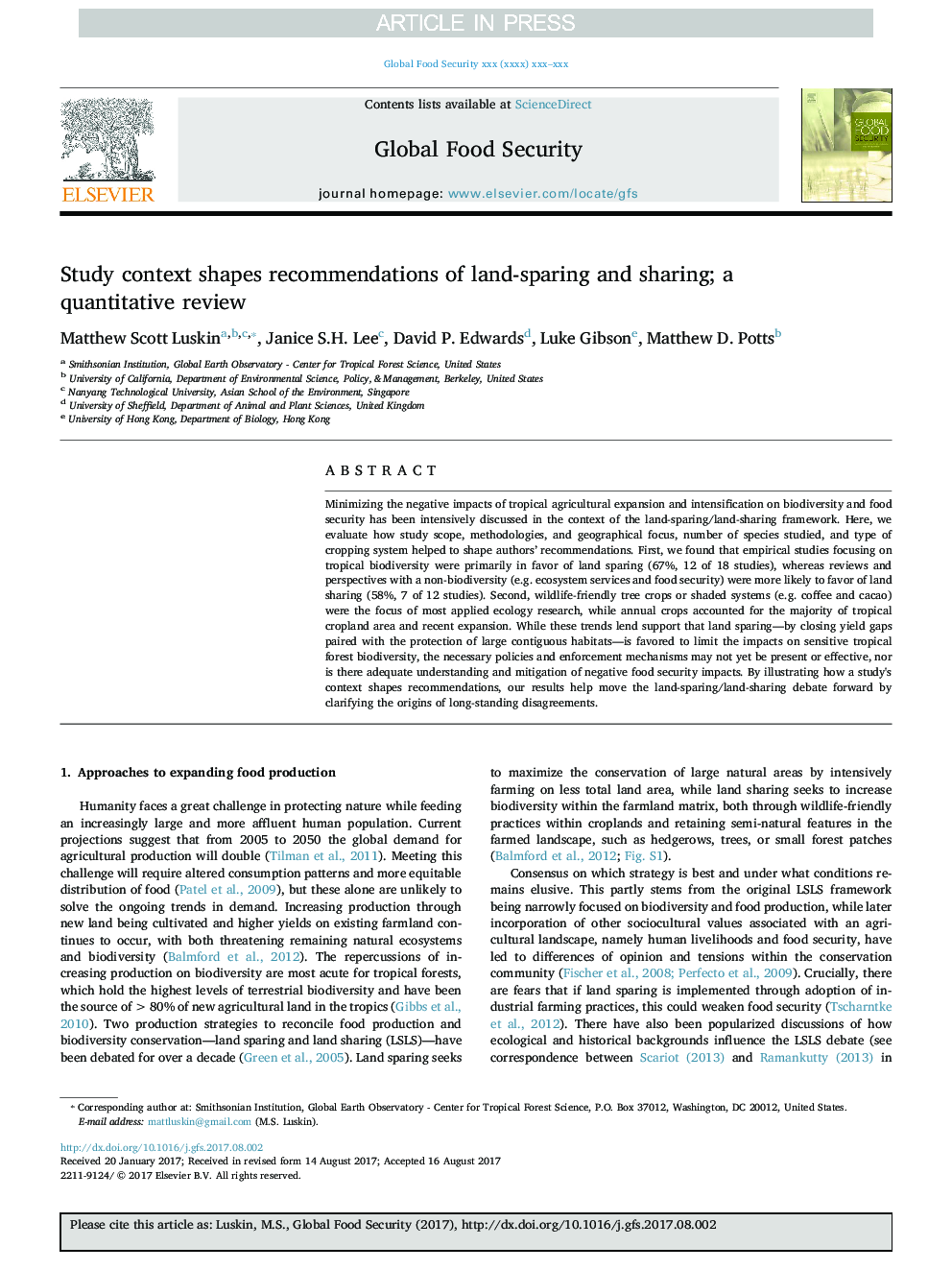| Article ID | Journal | Published Year | Pages | File Type |
|---|---|---|---|---|
| 7454493 | Global Food Security | 2018 | 7 Pages |
Abstract
Minimizing the negative impacts of tropical agricultural expansion and intensification on biodiversity and food security has been intensively discussed in the context of the land-sparing/land-sharing framework. Here, we evaluate how study scope, methodologies, geographical focus, number of species studied, and type of cropping system helped to shape authors' recommendations. First, we found that empirical studies focusing on tropical biodiversity were primarily in favor of land sparing (67%, 12 of 18 studies), whereas reviews and perspectives with a non-biodiversity focus (e.g. ecosystem services and food security) were more likely to favor of land sharing (58%, 7 of 12 studies). Second, wildlife-friendly tree crops or shaded systems (e.g. coffee and cacao) were the focus of most applied ecology research, while annual crops accounted for the majority of tropical cropland area and recent expansion. While these trends lend support that land sparing-by closing yield gaps paired with the protection of large contiguous habitats-is favored to limit the impacts on sensitive tropical forest biodiversity, the necessary policies and enforcement mechanisms may not yet be present or effective, nor is there adequate understanding and mitigation of negative food security impacts. By illustrating how a study's context shapes recommendations, our results help move the land-sparing/land-sharing debate forward by clarifying the origins of long-standing disagreements.
Related Topics
Life Sciences
Agricultural and Biological Sciences
Agronomy and Crop Science
Authors
Matthew Scott Luskin, Janice S.H. Lee, David P. Edwards, Luke Gibson, Matthew D. Potts,
